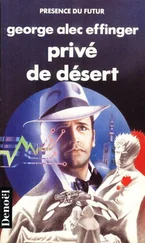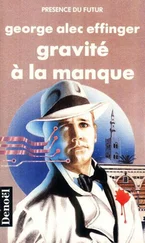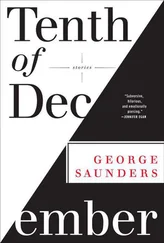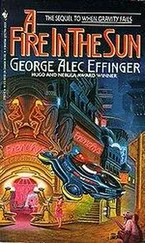She was glad, therefore, when the German atomic bomb project was removed from the control of the German army and given to the Reich Research Council. One of the first things to be done was the calling of a research conference at the Kaiser Wilhelm Institute of Physics in Berlin. The conference would be conducted under the tightest security; no preliminary list of topics would be released in advance, so that no foreign agents might see such terms as “fission cross-sections” and “isotope enrichment,” leading to speculation on the long-term goals of these physicists.
At the same time, the Reich Research Council decided to hold a second conference for the benefit of the government’s highest officials on the same day. The idea was that the scientists speaking at the Kaiser Wilhelm Institute’s meeting could present short, elementary summaries of their work in plain language so that the political and military leaders could be briefed on the progress being made toward a nuclear weapon. Then, following the laymen’s presentation, the physicists could gather and discuss the same matters in their more technical jargon.
Heisenberg thought it was a good idea. It was 1942, and material, political support, and funding were getting more difficult to find. The army wanted to put all available research resources into the rocketry program; they argued that the nuclear experiments were not showing sufficient success. Heisenberg was a theoretical physicist, not an engineer; he could not find a way to tell the council that the development of the uranium bomb must necessarily be slow and methodical. Each new step forward in theory had to be tested carefully, and each experiment was expensive in both time and money. The Reich, however, cared only for positive results.
One evening Jehan was alone in an administrative office of the Reich Research Council, typing her proposal for an important test of their isotope-separation technique. She saw on the desk two stacks of papers. One stack listed the simple synopses the physicists had prepared for Goring, Himmler, and the other Reich ministers who had little or no background in science. The second stack was the secret agenda for the physicists’ own meeting: “Nuclear Physics as a Weapon,” by Professor Dr. Schumann; “The Fission of the Uranium Atom,” by Professor Dr. Hahn; “The Theoretical Basis for the Production of Energy from the Fission of Uranium,” by Heisenberg; and so on. Each person attending the technical seminar would be given a program after he entered the lecture hall, and he would be required to sign for it.
Jehan thought for a long while in the quiet office. She remembered her wretched childhood. She recalled her arrival in Europe and the people she had come to know, the life she had come to lead here. She thought about how Germany had changed while she hid in her castle of scientific abstractions, uninvolved with the outside world. At last she thought about what this new Germany might do with the uranium bomb. She knew exactly what she must do.
It took her only a few moments to hide the laymen’s synopses in her briefcase. She then took the highly technical agendas and dropped them into the already-addressed envelopes to be sent to the Third Reich’s highest officials. She had guaranteed that the brief introductory discussion would be attended by no one. Jehan could easily imagine the response the unintelligible scientific papers would get from the political and military leaders — curt, polite regrets that they would not be in Berlin on that day, or that their busy schedules prevented them from attending.
It was all so easy. The Reich’s rulers did not hear the talks, and they did not learn how close Germany was to developing an atomic bomb. Never again was there any hope that such a weapon could be built in time to save the Reich — all because the wrong invitations had been slipped into a few envelopes.
Jehan awoke from a dream, and saw that the night had grown very old. It would not be long before the sun began to flood the sky with light. Soon she would have a resolution to her anxiety. She would learn if the boy would come to the alley or stay away. She would learn if he would rape her or if she would find the courage to defend herself. She would learn if she would be judged guilty or innocent of murder. She would be granted a glimpse of the outcome to all things that concerned her.
Nevertheless, she was so tired, hungry, and uncomfortable that she was tempted to give up her vigil. The urge to go home was strong. Yet she had always believed that her visions were gifts granted by Allah, and it might offend Him to ignore the clear warnings. For Allah’s sake, as well as her own, she reluctantly chose to wait out the rest of the dying night. She had seen so many visions since last evening — more than on any other day of her life — some new, some familiar from years passed. It was, in a small, human way, almost comparable to the Night of Power that was bestowed upon the Prophet, may Allah’s blessing be on him and peace. Then Jehan felt guilty and blasphemous for comparing herself to the Messenger that way.
She got down on her knees and faced toward Makkah and addressed a prayer to Allah, reciting one of the later surahs from the glorious Qur’ân, the one called “The Morning Hours,” which seemed particularly relevant to her situation. “‘In the name of Allah, the Beneficent, the Merciful. By the morning hours, and by the night when it is stillest, thy Lord hath not forsaken thee nor doth He hate thee, and verily the latter portion will be better for thee than the former, and verily thy Lord will give unto thee so that thou wilt be content. Did He not find thee an orphan and protect thee? Did He not find thee wandering and direct thee? Did He not find thee destitute and enrich thee? Therefore the orphan oppresseth not, therefore the beggar driveth not away, therefore of the bounty of thy Lord be thy discourse.’”
When she finished praying, she stood up and leaned against the wall. She wondered if that surah prophesied that soon she’d be an orphan. She hoped that Allah understood that she never intended anything awful to happen to her parents. Jehan was willing to suffer whatever consequences Allah willed, but it didn’t seem fair for her mother and father to have to share them with her. She shivered in the damp, cold air and gazed up to see if there was yet any brightening of the sky. She pretended that already the stars were beginning to disappear.
The square was jammed and choked with people. Soon Hilbert could see why: a platform had been erected in the center, and on it stood a man with what could only be an executioner’s axe. Hilbert felt his stomach sicken. His Arab guide had thrust aside everyone in their way until Hilbert stood at the very foot of the platform. He saw uniformed police and a bearded old man leading out a young girl. The crowd parted to allow them by. The girl was stunningly lovely. Hilbert looked into her huge, dark eyes — “like the eyes of a gazelle,” he remembered from reading Omar Khayyam — and glimpsed her slender form undisguised by her modest garments. As she mounted the steps, she looked down directly at him again. Hilbert felt his heart lurch; he felt a tremendous shudder. Then she looked away.
The Arab guide screamed in Hilbert’s ear. It meant nothing to the mathematician. He watched in horror as Jehan knelt, as the headsman raised his weapon of office. Hilbert shouted. His guide tightened his grip on the outsider’s arm, but Hilbert lashed out in fury and threw the man into a group of veiled women. In the confusion, Hilbert ran up the steps of the scaffold. The imam and the police officers looked at him angrily. The crowd began to shout fiercely at this interruption, this desecration by a European kafir, an unbeliever. Hilbert ran to the police. “You must stop this!” he cried in German. They did not understand him and tried to heave him off the platform. “Stop!” he screamed in English.
Читать дальше












